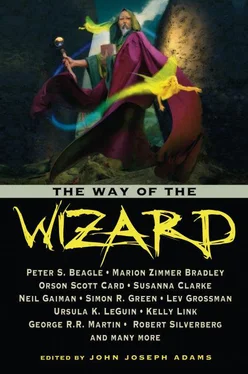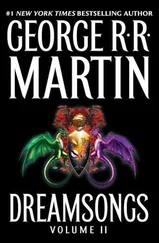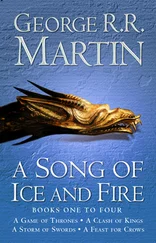Her mother, Sitiyok, had moved to Umiujaq as soon as the rest of the province began to fill up with refugees from the Lower States.
Everyone thought Sitiyok was a worrier and a coward to go. She was the shaman; how could she leave them? The land had been given to them; the land was theirs. Nothing would happen. Just because the Southern States were warming up didn’t mean anything. Let some people move north. Who wanted to live in the South anyway, if they could help it?
Sitiyok had smiled at them all, and had moved as far north as she could.
It was not a comfort to know, years later, that she had been right. Her parents’ cities were concreted over to make room for newcomers from the south.
Most Inuit tried to live off the new landscape as they had tried to live off the old one. They gave up hunting and waited tables; they gave up tanning hides and minded stores. They became government workers, or hotel managers, or pilots. Around them the air got warmer; winter was carved away from the land a little more each spring, and Southerners filled in the cracks like a rockslide.
In Umiujaq, Sitiyok took dogs out onto the ice to hunt for seal. She sold the skins she could spare; eventually she sold the dogs. When the sea warmed up and the seals didn’t return, the others in Umiujaq moved inland to find work, one family at a time.
“You can’t stay,” they said. “Come with us.”
Sitiyok smiled, and stayed where she was.
She and a few others remained in the ghost town, slowly starving out on their homeland. Sitiyok learned how to hunt rabbit; how to snare fish; how to go hungry.
One winter, she had a child, and named her Annakpok — the one who is free.
The Congresse Internationale du Magique was held in the Amphitheatre at Aventicum, in Switzerland; it avoided any question about the host country unduly influencing the proceedings.
As they left the hotel and the morning hit her, Anna frowned against the baking sun. “And we’re meeting in the amphitheatre because?”
“For the magic,” Stephens said, waving one hand vaguely before he caught himself. “No disrespect. It’s just — my faith is in science. I studied biology.”
She said, “So did I.”
He coughed. “Here’s our car.”
The Amphitheatre was ringed with police. Under a sign that read PLEASE KEEP ALL AMULETS VISIBLE, two security guards were peering at talismans, necklaces, and tattoos. Inside the Amphitheatre, food stands and souvenir booths had been set up, and the vendors were shouting over one another in their attempts to reach the milling crowd.
The tiers above the gladiatorial floor were marked off by country. She saw signs for Kenya, Germany, the Malaysian Republic, Russia. (She wondered if the Nenets still had real winter.)
“How long did it take to find enough natural magicians to fill the quota? Are there decoys? You can tell me.”
Stephens said, “Please keep your voice down.”
Her name was at the Canadian United Republic table, beside a man whose nameplate read James Standing Tall. He was older — as old as her mother would have been — and when he saw her approaching he blinked.
“I didn’t know there were still shamans in the Northern States,” he said by way of greeting.
“There aren’t,” she said as she sat. “They’ll take anyone these days.”
The sorcerer Adam Maleficio, Greater Britain delegate, was the last of them to arrive — under a suddenly-dark sky, in a single crack of lightning and a plume of smoke.
Several of the spellcasters stood and pointed their wands, canes, and open palms at the source of the disruption.
“Hold!” one shouted, and another cried, “Pax!”
Adam Maleficio held up his hands. “Friends, hold back your spells! I come among you as a brother, to speak with you of future friendship.” Absently, he brushed off his cape and his lapels. “ Absit iniuria verbis , no?”
A handful of sorcerers laughed. He laughed as well, his eyes glinting red, his teeth glinting white.
From behind Anna’s chair, Stephens leaned forward and translated, “May our words not injure.”
Anna said, “We’ll see about that.”
The Congress Director called for comments before the floor opened for debate.
Maleficio stood up with great ceremony and said, “I have been elected to deliver a statement on behalf of all users of magic.”
James Standing Tall looked at Anna. “Too late to opt out?”
“Eight hundred years too late,” she said.
Maleficio delivered an erudite and lengthy Statement of Brotherhood to the assembled. (There was no telling who had elected him to speak, since some spellcasters’ wands stayed pointed at him the whole time he read.)
After the first twenty minutes, Anna and James wrote notes to each other on their programs.
She learned he was Cree, one of the last of his nation. He had remained in the Southern States even after Canada had annexed them. He would come home to a spring of 130 degrees.
I can call the wind with prayer , he wrote. It’s better than leaving.
She didn’t question why he stayed. Anna had no questions to ask about where people dug the trenches for their last stands.
Instead she wrote, Why did you come?
He wrote, I wanted a voice.
What are you fighting for? she wrote.
He wrote, Everything. We will have to fight everything, if we are to have any power.
After a moment she wrote, My mother was the shaman, not me. I have no real magic.
On the floor of the amphitheatre, Adam Maleficio was saying, “Unity is more important now than ever, when magic users are taking a unique and visible position in a changing world. Let us not forget this is a place we made. This is a place of magic. This is a place for magic. And without unity, we weaken.”
James wrote, As long as you can fight.
Maleficio was still going, enjoying the podium and trying to drown out the translators for good measure. “This is a place for those who know true magic to meet with respect and understanding, to come together with a single vision, and, conjunctis viribus, we shall succeed in all we try to do on this sacred ground.”
“With united powers,” Stephens translated.
“May this be a milestone of a new era,” Maleficio finished.
He crushed the pages in his hands and threw his arms wide; the paper turned into six doves and flew away.
The day was boiling hot and fruitless, and during the Magic-Assisted Environment Preservation referendum Anna decided she would leave. There was no reason for her to pretend she had a voice in a council full of wand-wavers.
Then one of the delegates from Japan stood up to address the assembly.
She was wrapped in a fox stole so long that half a dozen fox heads knocked against one another as she stood. Under the stole her suit was the grey of rotting ice; the grey of the narwhal.
Anna sat up in her chair.
“While I can’t speak for all natural magicians,” the woman said, her voice carrying over the hum of translation, “I know my own magic has already been compromised by the problem that you ask us to solve. Without a natural world for us to call upon, we are powerless.”
Maleficio called, “Don’t pretend you’re powerless, foxwitch!”
Her stole rippled as the six fox heads lifted and hissed at the crowd.
“No magic, no speaking out of turn,” called the Congress Director. “Delegate Hana, thank you, you may sit down — no magic, ladies and gentlemen, please !”
The woman sat, amid a chorus of derisive laughter from the spellcasters.
James said, “If they had to call their spells from the grass, they wouldn’t be laughing.”
Читать дальше












